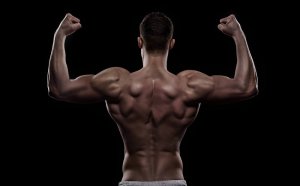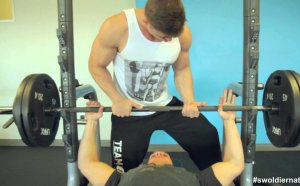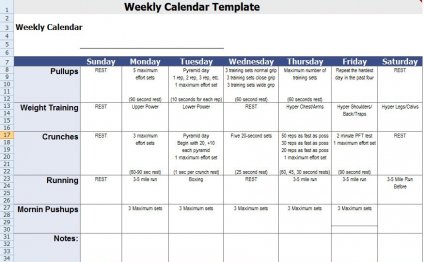
Beginner Bodybuilding Workout
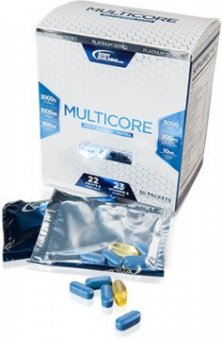
Supplements
Sport supplements can be a great aid in your efforts. Not only can smart use of supplements ensure you get enough of all nutrients you need to function well, you can even give yourself an extra edge in terms of strength, recovery speed and injury prevention.
However, navigating the seemingly endless list of supplements with the most fantastic claims can be challenging for experienced bodybuilders and daunting to beginners.
What works? What is just hot air and marketing baloney? And once you have figured out which products actually work, what brand do you pick? Do you go for the bargain from the company you've never heard of and risk getting disappointed, or do you go for the big name brand and get fleeced?
These are all valid questions and will be dealt with in due time, but let's start simple. As a beginner, you only have two real must-haves in terms of supplements. In a perfect world you don't even need that much, but in reality it is very hard to get what you need from regular food alone.
I am talking about the two fundamental bodybuilding supplements: Multivitamin/mineral tablets and some type of supplemental protein.
Multivitamin/Mineral Supplements
This is the most basic—and most important—supplement in your arsenal. Your body needs all its daily vitamins and minerals to function optimally, and unless you spend some serious time planning and preparing every meal of the day while ensuring no nutrients are destroyed through cooking, you need to take a supplement.
It's not very exciting, but if forced to pick only ONE supplement, this should be your choice. Multivitamin/mineral supplements can come in the shape of liquid, hard tablets, powder-filled capsules or even in "packs" with a whole bunch of pills and capsules. The shape you prefer is up to you, but be careful if you go for the hard tablet approach.
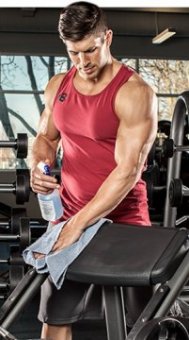 Some tablets are so hard they do not dissolve fully in your stomach and never give full benefit before they exit your system. It is wise to test hard tablets by placing them in warm (not hot) vinegar for 30 minutes or so. If the tablet is dissolved or at least mushy, it's Ok, but if it's still hard as a pebble you may have a dud on your hands.
Some tablets are so hard they do not dissolve fully in your stomach and never give full benefit before they exit your system. It is wise to test hard tablets by placing them in warm (not hot) vinegar for 30 minutes or so. If the tablet is dissolved or at least mushy, it's Ok, but if it's still hard as a pebble you may have a dud on your hands.
There are hundreds, if not thousands of brands that offer multivitamin/minerals. Go with a decently priced option from a reputable company. The important thing to look for is that you all or most of the RDA of all vital minerals and minerals.
You will find that manufacturers differ somewhat in the composition of their products, but don't sweat it as long as you get close to or all you need of all vitamins and minerals. Take your vitamin/mineral supplement with breakfast to make sure you remember it.
Protein Supplements
The main purpose of getting a protein supplement is to provide more "building material" for your muscles. As mentioned earlier, muscle tissue requires protein to repair itself and grow, so your diet needs to reflect this increased need for protein. However, it is often hard to get enough protein through regular foods throughout the day.
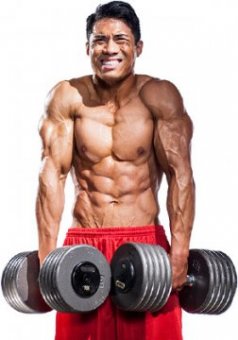 This is where the supplemental protein comes into the picture. The most common form of protein supplements is a simple powder that you mix with water or milk in a shaker or blender, but you can also buy pre-made drinks and protein-rich sport bars (not to be confused with sugar-packed energy bars). Heck, you can even buy protein-enriched pasta and other foods. For now we'll discuss plain powder.
This is where the supplemental protein comes into the picture. The most common form of protein supplements is a simple powder that you mix with water or milk in a shaker or blender, but you can also buy pre-made drinks and protein-rich sport bars (not to be confused with sugar-packed energy bars). Heck, you can even buy protein-enriched pasta and other foods. For now we'll discuss plain powder.
There are three basic types of protein powder, though the lines have gotten blurred in recent years. The formulas are:
- Gainers: Powders with tons of carbohydrates to go with the protein. Very calorie-dense and suitable for naturally skinny people who have problems eating enough to gain weight.
- Meal Replacement Drinks: Relatively balanced protein/carbohydrate content with a moderate amount of calories. A handy product for when you need to eat but don't have time to prepare a real meal.
- Pure Protein Drinks: Little or no carbohydrates, all protein. Low calories; a 40 grams-of-protein serving can have 200 calories or less, making it an excellent choice for naturally chunky people who want to keep calories low while getting the protein they need.
If you're a skinny person who can't eat enough calories through regular food, buy a gainer and try to chug as much as you can between meals. As the name implies, the meal replacement drinks are suitable when you're on the go and don't have time for a real meal.
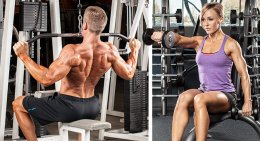 Last but not least, pure protein drinks can be taken as part of a snack, to boost the protein content of your breakfast, or right before bed as a way to give your body some extra help in growing.
Last but not least, pure protein drinks can be taken as part of a snack, to boost the protein content of your breakfast, or right before bed as a way to give your body some extra help in growing.
Regardless of which type of protein drink you buy, be sure not to get into the habit of skipping meals in favor of drinks. Supplements are only supplements; your main source of nutrition should always be good, healthy food!
Tips & Tricks
Coming into a new environment is always a challenge. There are concepts and unwritten rules that everyone except you take for granted. Don't worry, you'll get the hang of things in no-time.
When you choose a gym, make sure to pick one that you feel comfortable in. Take your time—walk around, look at the machines, see how packed the place is and what type of people go there. Also check so that it is within reasonable driving distance. If you have to drive 30 minutes each way, chances are you'll start looking for excuses not to go.
Get the gear you need. A clean, loose T-shirt, knee-length shorts and indoor-only sneakers are a good start for clothing. You also want to bring a padlock, a bottle of water and a small sweat-towel. If you intend to shower at the gym, don't forget a full-size towel, fresh underwear and shampoo. You can also get optional things like gloves and lifting straps or hooks, but you may want to start without to assess what your needs are.
If you're unsure about the exercises, hire a personal trainer to make sure you get started on the right foot. The key to progress and avoiding injuries is getting the grooves right, and you might as well learn everything right from the start so you don't have to "unlearn" later. Many gyms offer a couple of free sessions with a trainer when you sign up—take advantage of it!
Learn the gym etiquette. Let others use your machine between your sets, wipe off your sweat from machines and pads, unload the plates when you're done and don't start yakking with people in the middle of their sets. Leave the pager and cell phone in the locker. And check your personal hygiene—nobody likes the guy who smells like a donkey.
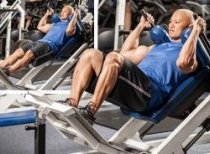


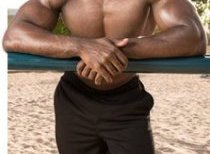
INTERESTING VIDEO

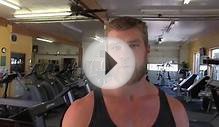
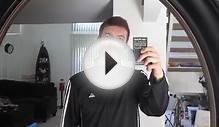
Share this Post
Related posts
Bodybuilding workout program
Summer s no longer merely knocking; it s torn the door off the hinges and barged right in. All those weeks you had to build…
Read MoreSteve Cook Chest Workout
24g of Whey Protein with Amino Acids for Muscle Recovery and Growth* Go Now! Superset 1 When performing the close-grip bench…
Read More